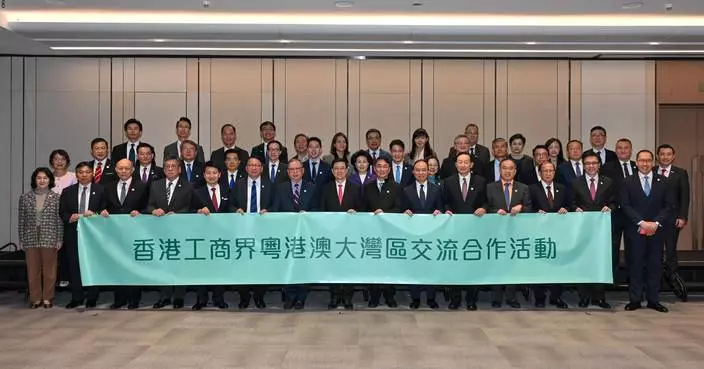AFCD announces new quarantine arrangements for imported cats and dogs
The Agriculture, Fisheries and Conservation Department (AFCD) announced today (November 26) that new quarantine arrangements for imported cats and dogs will be implemented starting from December 1. The AFCD will introduce Group IIIA for exporting countries/places, thereby increasing the number of groups from three to four. The quarantine period for cats and dogs imported from Group IIIA countries/places will be significantly shortened from the current 120 days to 30 days upon their arrival in Hong Kong, provided that they meet the relevant quarantine requirements. The Macao Special Administrative Region is the first place to be included in Group IIIA. The AFCD is currently discussing with Mainland authorities the implementation details of including the Mainland in Group IIIA. Announcements will be made in due course.
Applicants for importing cats and dogs from Group IIIA countries/places should ensure that the requirements are met and provide relevant proof to the AFCD, including that the animals must be implanted with a conforming microchip, accompanied by valid vaccination certificates against rabies and other specified infectious diseases, have a satisfactory rabies neutralising antibody titre test result from a laboratory recognised by the AFCD, and an animal health certificate issued or endorsed by a government veterinary officer of the country/place of export. Details about the new quarantine arrangements and the application procedure for importing cats and dogs, including the reservation of quarantine facilities and information on the recognised laboratories, are available on the AFCD website:www.afcd.gov.hk/english/quarantine/qua_ie/qua_ie_ipab/qua_ie_ipab_idc/qua_ie_ipab_idc_Group_IIIa.html.
An AFCD spokesman noted that as biotechnology has developed in recent years, the AFCD has conducted a risk assessment earlier on and considered that the quarantine period for cats and dogs imported from certain Group III places could be shortened by measures such as rabies vaccination and rabies neutralising antibody titre tests. The new arrangement aims to optimise the quarantine requirements for importing cats and dogs, helping pet owners bring cats and dogs to Hong Kong.
Under the new arrangement, the AFCD will approach countries/places that do not meet the requirements to be included in Group II but have satisfactory regulation of veterinary services and official controls on health certification for quarantine arrangements. Upon reaching agreements, these countries/places will be categorised as Group IIIA to shorten the quarantine period for importing cats and dogs upon their arrival in Hong Kong. The original Group III will be renamed as Group IIIB. Since the incubation period of rabies can be up to several months, the quarantine period for importing cats and dogs from Group IIIB countries/places will remain no less than 120 days.
To effectively prevent the transmission of rabies into Hong Kong, the AFCD classifies places into different groups according to different risks of rabies, with reference to information about the surveillance of animal diseases from the World Organisation for Animal Health. Group I includes rabies-free places (i.e. where rabies has been absent for a long time); Group II includes places where rabies cases are few and under effective control; Group IIIA includes places that do not meet the requirements to be included in Group II but have satisfactory regulation of veterinary services and official controls on health certification; and Group IIIB includes places where rabies cases are reported and not under effective control. In general, places that do not meet the requirements of Group I, II or IIIA (or cannot be assessed) will be included in Group IIIB.
Health Bureau organises Health Research Symposium to showcase achievements of advancing health through research and technology
The Health Research Symposium, organised by the Health Bureau, was held today (November 26). The Symposium attracted enrolment from over 850 medical and healthcare practitioners, researchers, academics, and community and government representatives to share the research findings of projects funded by the Health and Medical Research Fund (HMRF) as well as to exchange experiences.
With this year's theme set on "Advancing Health through Research and Technology", the Symposium provided a networking platform for healthcare experts and relevant personnel to share knowledge and achievements in promoting excellence in health and medical research. Four world-renowned experts, namely Professor Anthony Jorm, Dr Alexander Ng, Professor Chen Zhengming and Professor Corinne Faivre-Finn, were invited to deliver keynote lectures at the Symposium to enlighten the attendees with their experiences and insights on mental health, the application of big data in primary healthcare, precision medicine, and real-world research, respectively.
The Secretary for Health, Professor Lo Chung-mau, and the Under Secretary for Health, Dr Libby Lee, attended the opening ceremony of the Symposium. Professor Lo said, "The Government has been striving to promote and encourage the translation of medical and health research by researchers and the healthcare sector by funding and supporting medical and health research as well as training through the HMRF, with a view to benefitting citizens' well-being and advancing medical innovation development. Since the establishment of the HMRF in 2011, the Government has committed over $4 billion and funded over 2 000 investigator-initiated research projects, more than 90 research fellowship awards, and close to 300 commissioned studies.
"The HMRF attaches great importance to the translation of research findings of funded projects with a view to facilitating the formulation of healthcare policies, strengthening the healthcare system and boosting the standard and quality of healthcare services, thereby attaining the goal of enhancing public health. I am pleased to see that many HMRF-funded projects have provided researchers with effective support for them to create new knowledge in the healthcare field and yielded fruitful results in translating research into evidence-based application, with significant contribution to promoting citizens' health. I call for local researchers to continue to make good use of the HMRF to accelerate the translation of research results, unleash new quality productive forces in medical innovation, and push forward Hong Kong's development into an international health and medical innovation hub."
According to the surveys conducted by the Government on 145 HMRF-funded projects and with technology/knowledge transfer offices of universities this year, 78 per cent of the funded projects had their research findings published in peer-reviewed journals, creating new knowledge in the biomedical field; whereas 42 per cent of the funded projects received additional funding for further research, with each project receiving an additional funding amounting to five times that of the HMRF grant on average. In terms of progress towards industrialisation, the HMRF-funded projects have filed 162 patent applications in different places (including the Mainland, Hong Kong, Europe, the United States and Japan), established 15 spin-out companies/joint ventures/incubation programmes, and signed 11 collaboration agreements of various types. Moreover, some HMRF-funded studies have brought positive impact on the formulation of healthcare policies and practices in areas such as infectious diseases and cancer treatment.
To recognise the excellent research efforts and outstanding contributions of researchers in the areas of medical and health, health promotion and COVID-19, awards were presented to 13 researchers at the Symposium today. The awardees are listed as below:
Excellent Research Awards
Professor Richard Choy Kwong-wai
Professor Han Quanbin
Professor Margaret Ip
Professor Cindy Lam Lo-kuen
Professor Simon Ng Siu-man
The Most Promising Young Researcher Awards
Dr Shara Lee Wee-yee
Professor Wang Zixin
Excellent Health Promotion Project Award
Professor Winnie Mak Wing-sze
Outstanding Project Team on COVID-19 Research Awards
Professor Francis Chan Ka-leung
Professor Philip Li Hei
Professor Leo Poon Lit-man
Professor Yuen Kwok-yung
Professor Zhang Tong
At the Symposium today, 28 local project teams funded by the HMRF and four recipients of the Research Fellowship Scheme were invited to share their research findings and translation results, covering research in areas including advanced medical technologies, primary healthcare and preventive medicine, non-communicable diseases, mental health and infectious diseases. Nearly 80 HMRF-funded projects were also displayed at a poster exhibition at the Symposium to showcase the achievements.
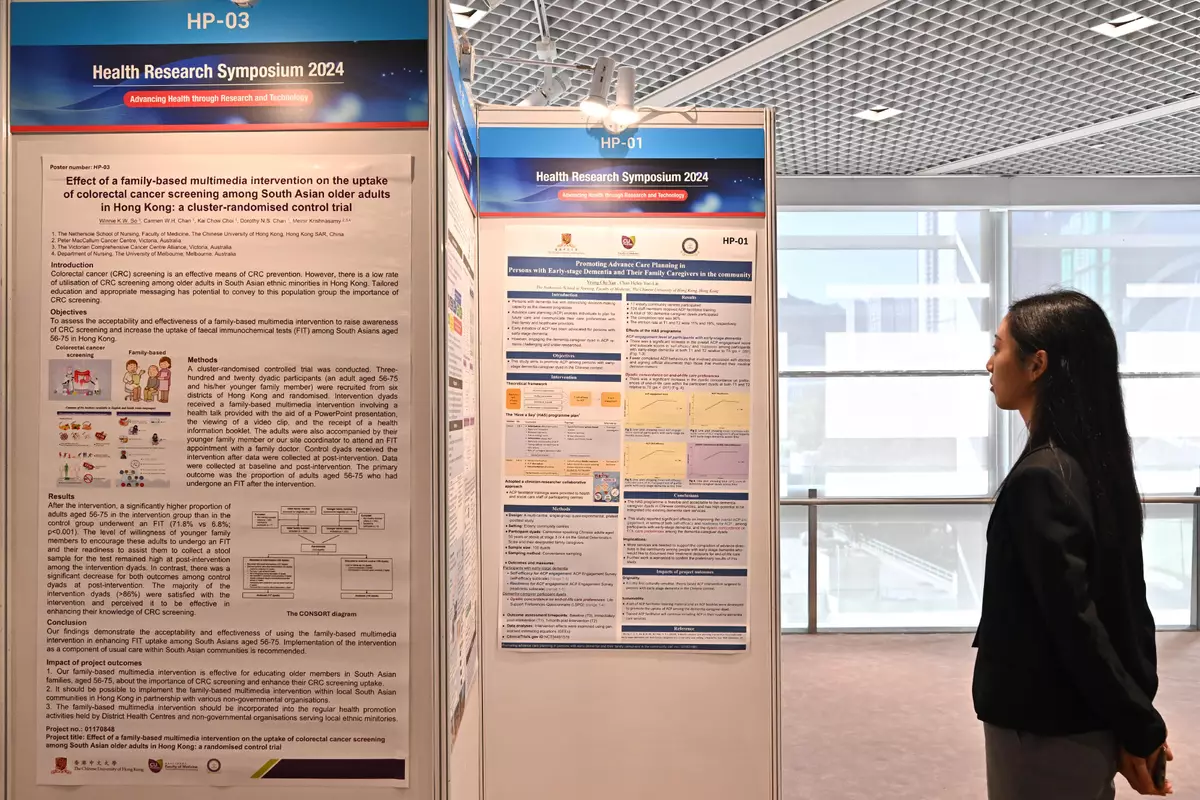
Health Bureau organises Health Research Symposium to showcase achievements of advancing health through research and technology Source: HKSAR Government Press Releases
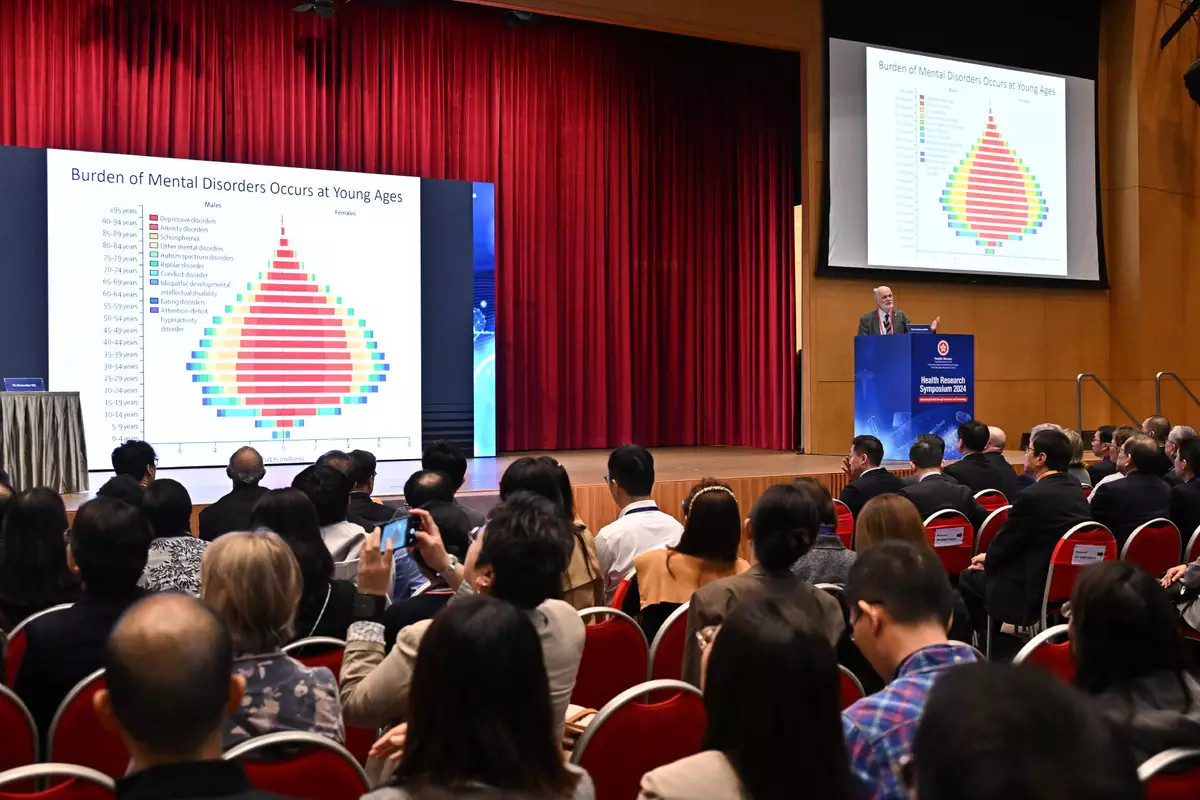
Health Bureau organises Health Research Symposium to showcase achievements of advancing health through research and technology Source: HKSAR Government Press Releases
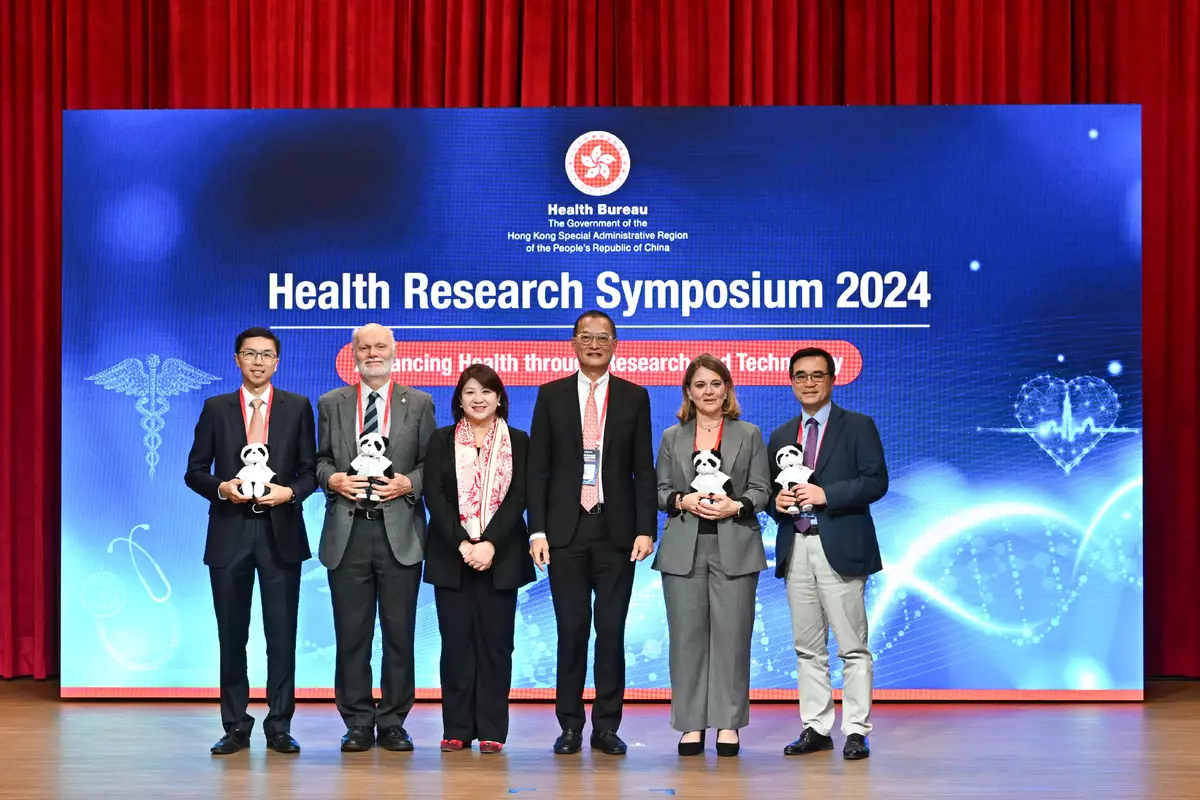
Health Bureau organises Health Research Symposium to showcase achievements of advancing health through research and technology Source: HKSAR Government Press Releases
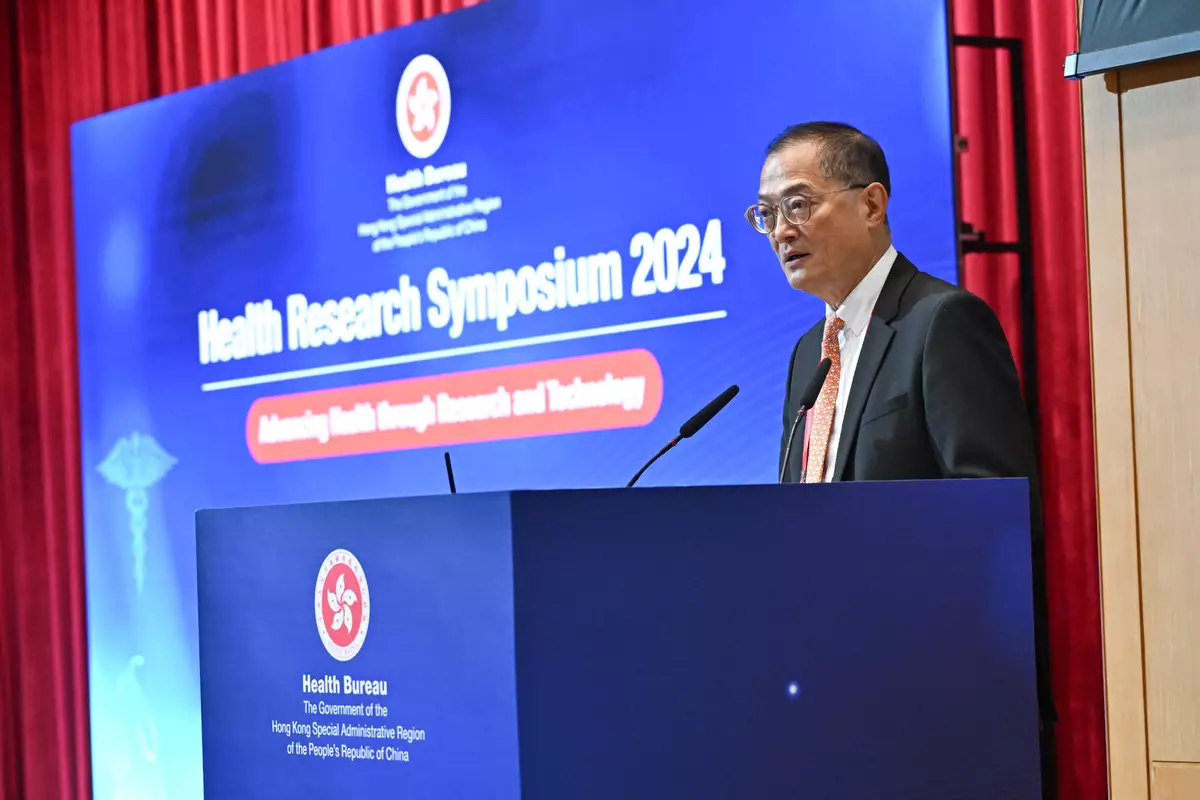
Health Bureau organises Health Research Symposium to showcase achievements of advancing health through research and technology Source: HKSAR Government Press Releases
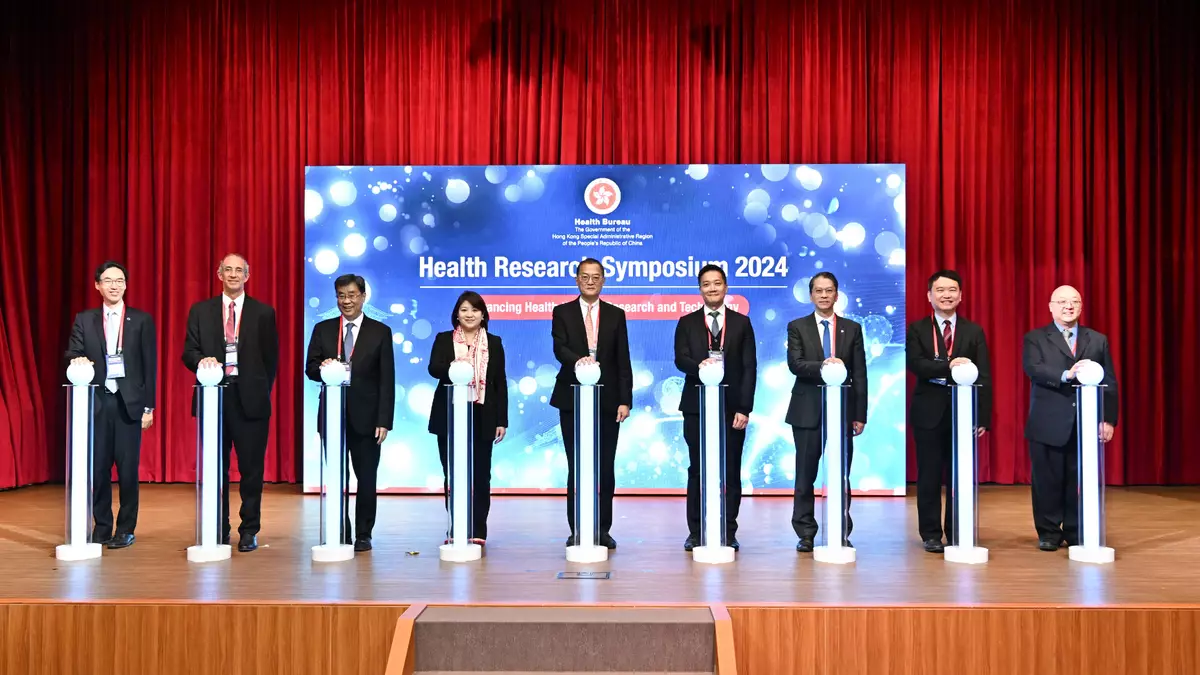
Health Bureau organises Health Research Symposium to showcase achievements of advancing health through research and technology Source: HKSAR Government Press Releases











